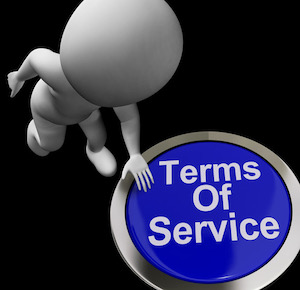By Susan McCullah
Efficient vendor management benefits companies in several ways. It can increase productivity, decrease down time and supply chain issues, and reduce overall operating costs. Plus, it can eliminate a bunch of HR headaches!
A pivotal part of a successful vendor management process starts at the beginning with vendor screening. Just like your job applicants, vendors should be put through a series of screening checks so you can be confident about their ability to deliver the quality products you need.
The tips below are good stepping-stones in building your ultimate vendor screening program.
Consider Consolidation
The less HR Pros must keep up with, the more effective they can be at doing their jobs. One of the first steps to take at the beginning of your vendor screening process is to reduce the number of vendors you use. Go with the more professional, proven, dependable partners and remove the rest. This move gives you more time to create a positive relationship with the remaining vendors and reduces the risk of a third-party vendor creating issues within your organization.
Research Their Reputation
Failing to follow a documented process sets you up for failure. Choosing the first vendor you speak with may seem to save you time on the front end, but you could be missing negative information that can be risky down the road. Figure out who the main players are and check out their websites. Look at their size and the products they offer. Do they integrate with systems and processes you already use? Do they offer training? Is there evidence they currently work with companies like yours?
By understanding your vendor options, you will more likely choose the ones that will help you grow and thrive.
When you narrow down your list of potential partners, you need to speak with a vendor representative.
Expect Earnest Answers
Ask the hard questions and require in-depth information about the products and processes. Find out if the vendor offers scalability. For example, if your company opens new branches, how fast can they have them up and running? Will they be able to train and support them? Also, have them explain how their service team supports their clients. Request they tell you about their other clients in industries similar to yours, how long they’ve worked with them, and how they meet their needs. Make sure you understand their total pricing package and any extras that aren’t automatically included. The people who will be involved in servicing your account are critical. Find out how their team is trained and their qualifications. Finally, expect answers on what success looks like for them and how they audit their finished product.
Confirm Compliance Standards
Company compliance is a top priority and vendor compliance fits under that umbrella. After all, a company’s information is only as secure as its vendors’. Ask for a copy of their written protocol of how they handle compliance standards. How are their staff trained to handle data? Where is their client information stored? How secure are their firewalls and who manages the upkeep of security? Evidence of vague or inconsistent compliance practices is a good reason to cross that vendor off your list.
Review Their References
Polished salespeople paint rosy pictures. Their claims shouldn’t be the only information you use to weigh your decision. Ask to speak to two or more of their clients, preferably in a related industry and of a comparable size. Conduct a friendly conversation about their level of satisfaction. Ask how the vendor solves problems, get them to walk you through their communication strategy, and find out how long they have been clients of the vendor. Ask them to explain what specific tasks the vendor could improve upon. Be leery of a vendor who won’t share at least one reference with you.
Companies depend on vendors to provide products and services so they can run productively and uninterrupted. Spending time and resources vetting your vendors should be a top priority. Putting extra effort into this endeavor protects your company and reduces the risk an unstable or disreputable vendor can cause.

Marketing Manager – Background Screening
Data Facts, Inc.
susan@datafacts.com
www.datafacts.com
